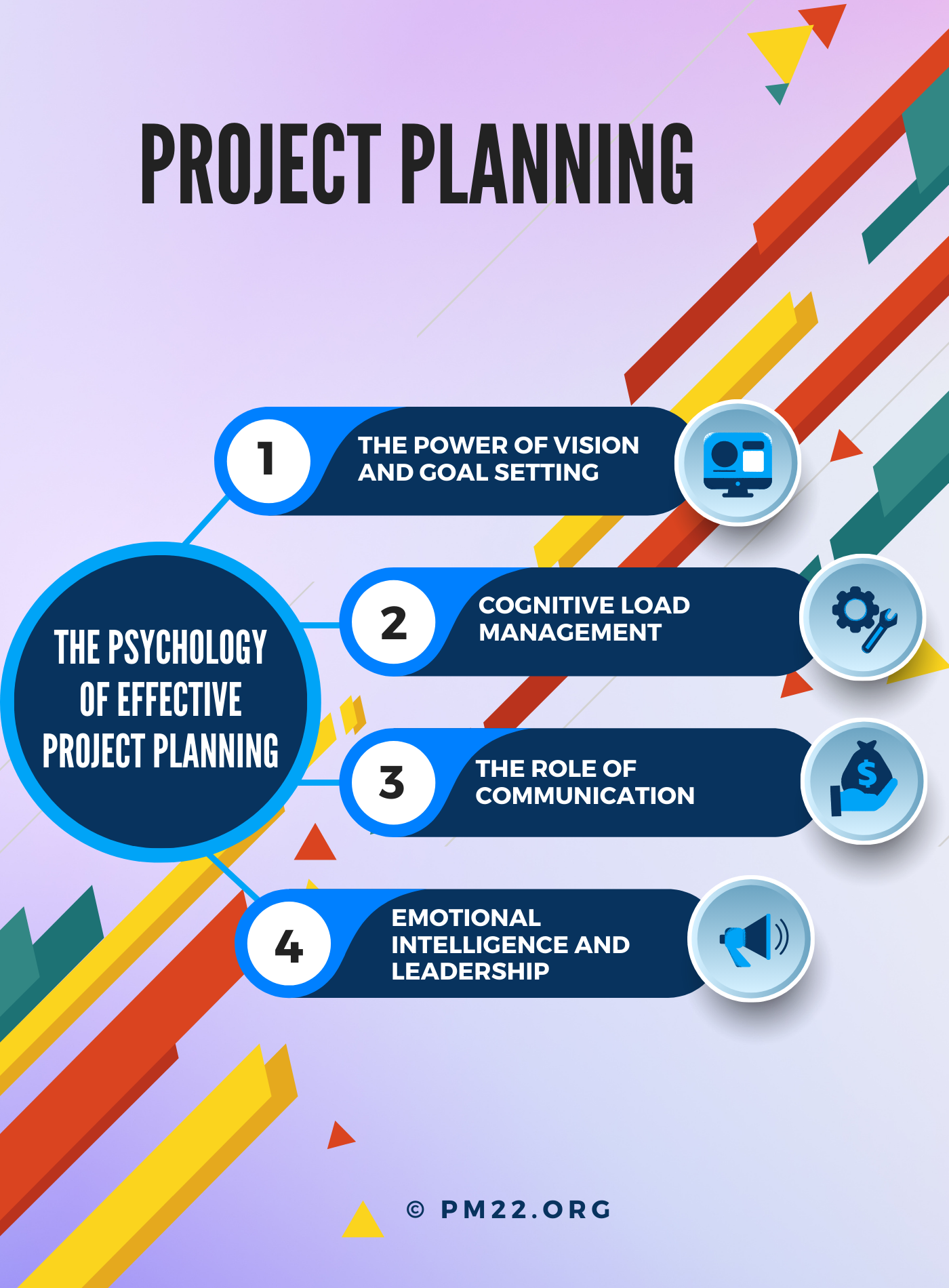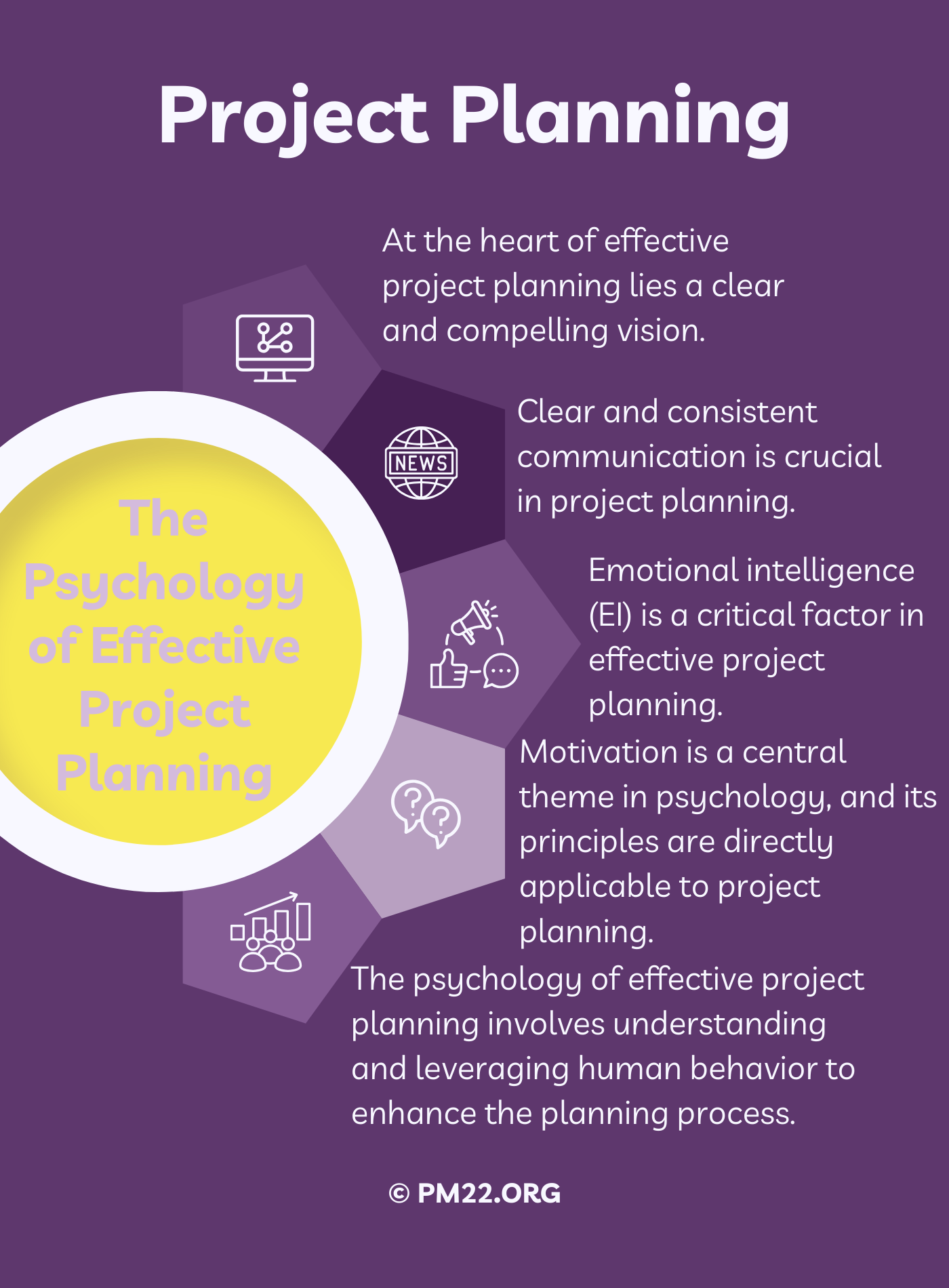 Effective project planning is a cornerstone of successful project management, yet its psychological dimensions are often overlooked. Understanding the human factors at play can significantly enhance the planning process, leading to more efficient execution and better outcomes. This article explores key psychological principles that underpin effective project planning.
Effective project planning is a cornerstone of successful project management, yet its psychological dimensions are often overlooked. Understanding the human factors at play can significantly enhance the planning process, leading to more efficient execution and better outcomes. This article explores key psychological principles that underpin effective project planning.
The Power of Vision and Goal Setting
At the heart of effective project planning lies a clear and compelling vision. Psychologically, humans are driven by goals that are well-defined and meaningful. When a project has a clear objective, it provides a sense of direction and purpose. This aligns with the psychological concept of goal-setting theory, which posits that specific and challenging goals enhance performance. Project managers should articulate the project’s end goal in a way that resonates with team members, providing a motivational boost that fuels persistence and effort.
CLICK HERE TO DOWNLOAD 300+ PROJECT MANAGEMENT TEMPLATES & DOCUMENTS IN EXCEL
Cognitive Load Management
Cognitive load theory emphasizes the importance of managing the amount of information that team members are required to process at any given time. In project planning, this means breaking down tasks into manageable chunks and avoiding overwhelming the team with too much information at once. Effective planners prioritize tasks and create phased schedules that allow team members to focus on one aspect of the project at a time. This not only improves efficiency but also reduces stress and prevents burnout.
The Role of Communication
Clear and consistent communication is crucial in project planning. From a psychological perspective, effective communication fosters a sense of trust and collaboration within the team. Social psychologist Robert Cialdini highlights the principle of social proof, which suggests that people look to others to guide their own actions. When project leaders communicate effectively, they set a standard for transparency and cooperation, encouraging team members to follow suit. Regular updates, feedback sessions, and open channels of communication ensure that everyone is aligned and any issues are promptly addressed.
Emotional Intelligence and Leadership
Emotional intelligence (EI) is a critical factor in effective project planning. Leaders with high EI are adept at understanding and managing their own emotions, as well as those of their team members. This ability is crucial in navigating the complexities of project dynamics. Empathy, a core component of EI, allows leaders to gauge the mood and morale of the team, making it easier to address concerns and maintain motivation. Furthermore, leaders who demonstrate emotional stability and resilience can better manage stress and setbacks, creating a more positive and productive working environment.
CLICK HERE TO DOWNLOAD 300+ PROJECT MANAGEMENT TEMPLATES & DOCUMENTS IN EXCEL
Motivation and Reward Systems
Motivation is a central theme in psychology, and its principles are directly applicable to project planning. Intrinsic motivation, driven by personal satisfaction and interest in the work, is often more sustainable than extrinsic motivation, which relies on external rewards. Effective project planners design tasks that are inherently engaging and provide opportunities for team members to take ownership and demonstrate their skills. Additionally, incorporating a system of recognition and rewards can enhance motivation. Celebrating milestones and acknowledging individual contributions reinforces a sense of achievement and encourages continued effort.
Overcoming Cognitive Biases
Cognitive biases, such as optimism bias and confirmation bias, can distort project planning. Optimism bias leads to overly positive projections, while confirmation bias results in ignoring evidence that contradicts preconceived notions. Awareness of these biases allows project managers to adopt a more balanced approach. Implementing structured decision-making processes and seeking diverse perspectives can mitigate the effects of these biases, leading to more realistic and effective plans.
In conclusion, the psychology of effective project planning involves understanding and leveraging human behavior to enhance the planning process. By incorporating principles of goal setting, cognitive load management, communication, emotional intelligence, motivation, and bias awareness, project managers can create plans that are not only strategic but also psychologically sound. This holistic approach ensures that projects are well-conceived, executed efficiently, and achieve their intended outcomes.
